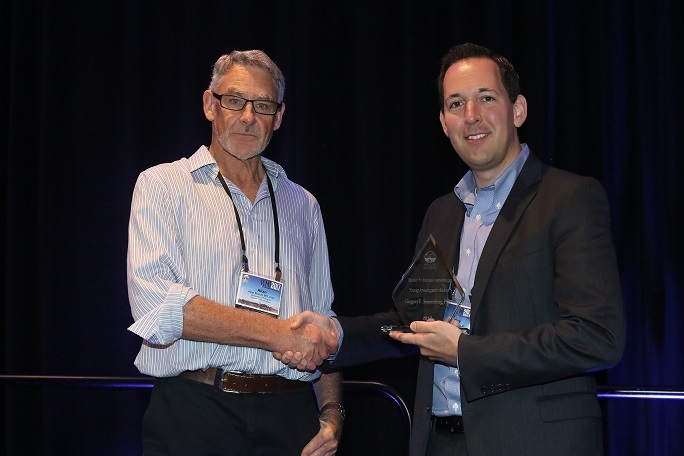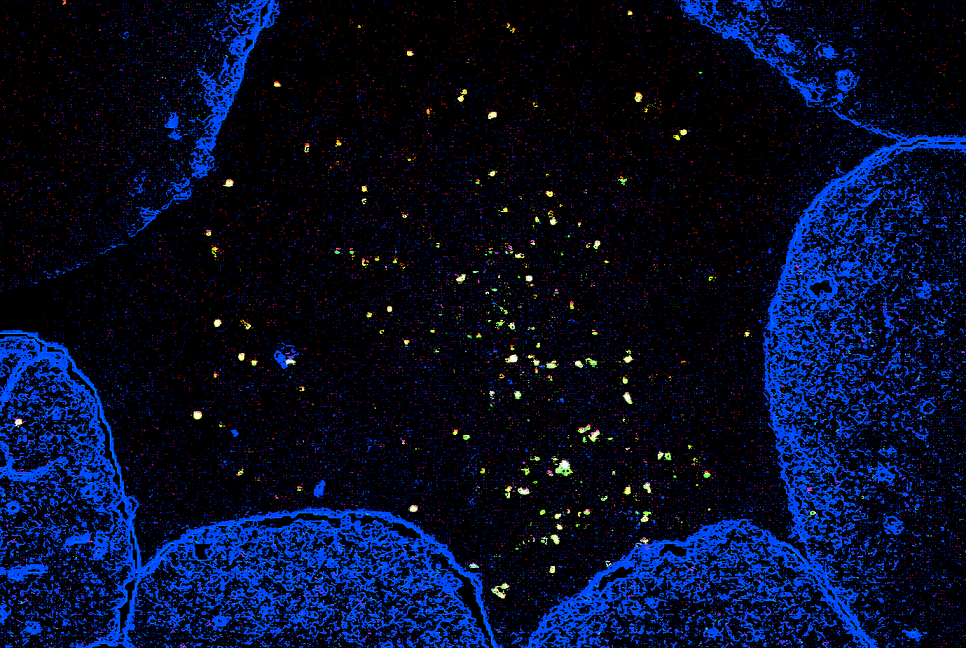Dr. Gregory Sonnenberg, an assistant professor of microbiology and immunology at Weill Cornell Medicine, has received the newly established Young Investigator Award from the Society for Mucosal Immunology.
The award honors investigators within 15 years of their postdoctoral training who have made significant contributions to the field of mucosal immunology, which is the study of immune responses that occur in the intestines, lungs and urogenital tract.
Dr. Sonnenberg accepted his award at the 18th International Congress of Mucosal of Immunology on July 19 in Washington, D.C. The award carries a cash prize and additional funds to support Dr. Sonnenberg’s laboratory.

Dr. Greg Sonnenberg accepts his award from society President Dr. Allan Mowat. Photo credit: Society for Mucosal Immunology
“It is an enormous honor to receive this award from the Society for Mucosal Immunology in acknowledgement of my laboratory’s research contributions,” said Dr. Sonnenberg, who is also a member of the Jill Roberts Institute for Research in Inflammatory Bowel Disease at Weill Cornell Medicine. “It is truly a testament to the outstanding advisors, past and present lab members, and collaborators I had the pleasure of working with throughout my career.”
Dr. Sonnenberg’s research centers on better understanding the processes that maintain a healthy state in the human gastrointestinal tract. Specifically, he and his team are focused on the relationship between beneficial or “commensal” bacteria – which live in the intestine and are important for digestion and the maturation of the immune system – and their mammalian hosts.
While the relationship between commensal bacteria and their hosts is normally beneficial, the immune system attacks these “good” bacteria and causes chronic inflammation associated with numerous human diseases, such as inflammatory bowel disease, HIV/AIDS, viral hepatitis, cardiovascular disease, obesity, asthma, diabetes and cancer. His team is investigating why the immune system changes course and disrupts the normally beneficial relationship. Their aim is to determine how to restore this relationship to its positive state.
Recent studies at Dr. Sonnenberg’s lab have focused on an emerging family of immune cells, which play a role in regulating interactions between the commensal bacteria and the immune system, called intestinal-resident innate lymphoid cells (ILCs). Some of the research from Dr. Sonnenberg’s laboratory has highlighted the ILCs’ ability to tell the immune system not to attack commensal bacteria.
“The ILCs could hold an important key to restoring beneficial interactions between microbes in the gut and the immune system to limit chronic inflammation associated with many different diseases,” Dr. Sonnenberg said.
Ongoing research will look at ILC responses and interactions with commensal bacteria in healthy and diseased tissue samples. The lab plans to translate their findings from mouse models into clinically relevant information that will help develop therapies to treat chronic diseases.

